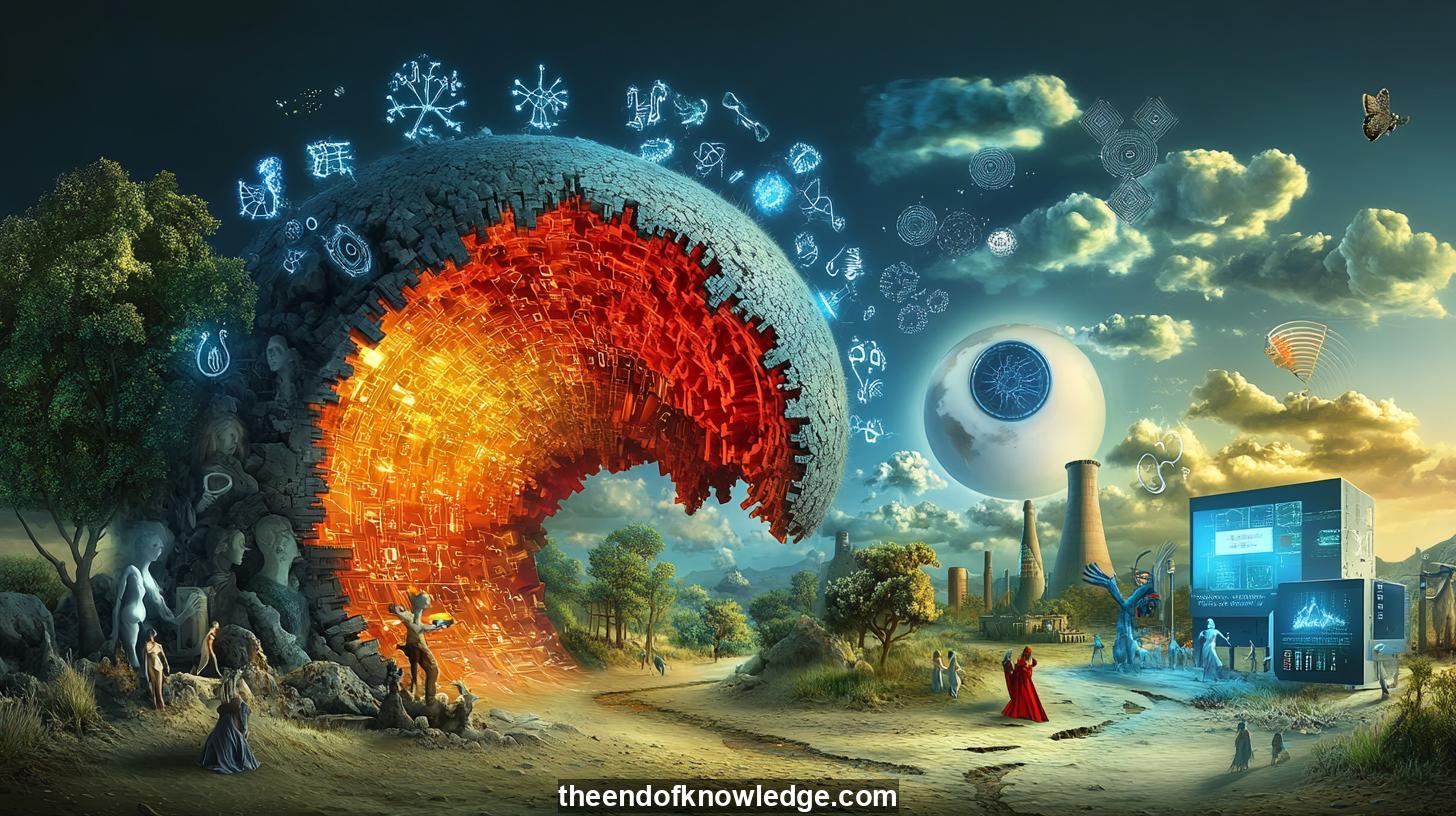 >
>
Concept Graph, Resume & KeyIdeas using DeepSeek R1 :
Resume:
The podcast explores the ethical implications of artificial intelligence (AI) and its potential impact on humanity, drawing parallels with the development of the atomic bomb. The discussion centers on the movie *Oppenheimer* and the responsibilities of scientists, governments, and corporations in developing such technologies. Participants highlight the need for ethical frameworks to guide AI development, emphasizing the importance of human values and accountability. The conversation also delves into the role of power and control, questioning whether AI should be managed by governments or private corporations. The ethical dilemmas and potential consequences of AI are compared to the atomic bomb, underscoring the need for global cooperation and regulation to prevent catastrophic outcomes. The podcast concludes with a call for collective action to ensure that AI serves humanity's best interests, rather than leading to its downfall.30 Key Ideas:
1.- The podcast discusses the ethical implications of AI, comparing its potential impact to the atomic bomb.
2.- The movie *Oppenheimer* serves as a backdrop to explore scientific responsibility and humanity's future.
3.- AI's development raises questions about control, with debates on whether governments or corporations should manage it.
4.- Ethical frameworks are crucial to prevent AI from causing harm, akin to the lessons learned from the atomic bomb.
5.- The role of power and control in AI development is a central theme, with concerns about concentration in the hands of a few.
6.- Scientists and engineers are urged to consider the consequences of their work on humanity.
7.- The podcast emphasizes the need for global cooperation to regulate AI and prevent misuse.
8.- AI's potential to transform society is highlighted, but so are the risks of unchecked technological advancement.
9.- Historical parallels with the atomic bomb remind us of the importance of learning from past mistakes.
10.- The ethical dilemmas of AI development are complex, requiring a balance between innovation and responsibility.
11.- The role of governments in regulating AI is debated, with some arguing for stricter oversight.
12.- Private corporations' influence on AI development raises concerns about accountability and transparency.
13.- The podcast calls for a collective effort to ensure AI serves humanity's best interests.
14.- The ethical implications of AI extend beyond technology to societal structures and human values.
15.- The need for empathy and compassion in guiding AI development is emphasized.
16.- The potential for AI to exacerbate inequalities is a significant concern.
17.- The podcast highlights the importance of education and awareness in shaping AI's future.
18.- The intersection of technology and humanity is explored, with a focus on preserving human values.
19.- The role of individual responsibility in shaping AI's impact is underscored.
20.- The podcast serves as a call to action for ethical AI development and responsible innovation.
21.- The comparison between AI and the atomic bomb underscores the need for caution and foresight.
22.- The potential for AI to solve global challenges is balanced against its risks.
23.- The podcast explores the tension between progress and preservation of human dignity.
24.- The importance of diverse perspectives in AI development is highlighted.
25.- The need for accountability in AI decision-making processes is emphasized.
26.- The podcast discusses the potential for AI to reshape societal norms and values.
27.- The ethical considerations of AI extend beyond technology to encompass philosophy and human rights.
28.- The role of education in preparing future generations for AI's impact is discussed.
29.- The podcast calls for a global dialogue on AI's ethical implications and governance.
30.- The potential for AI to enhance or undermine democracy is explored, highlighting the need for vigilance.
Interviews by Plácido Doménech Espí & Guests - Knowledge Vault built byDavid Vivancos 2025